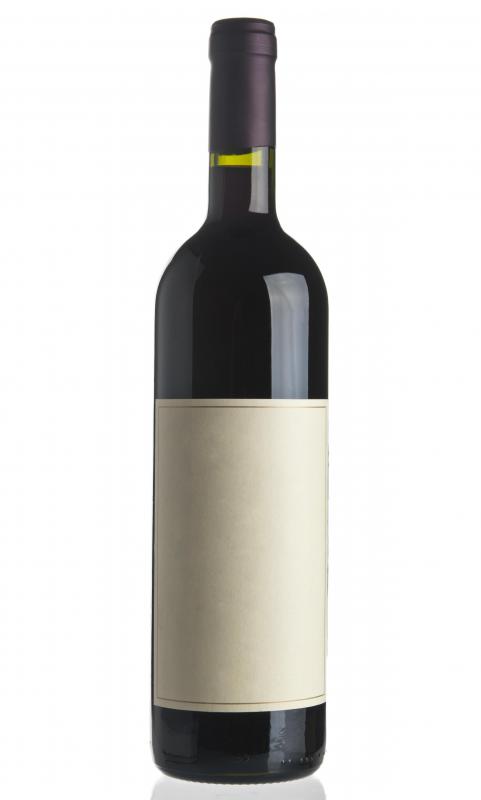At WiseGEEK, we're committed to delivering accurate, trustworthy information. Our expert-authored content is rigorously fact-checked and sourced from credible authorities. Discover how we uphold the highest standards in providing you with reliable knowledge.
What Is Vegetarian Wine?
Wine is made from grapes fermented with yeast. Despite the vegetarian ingredients, many wines are not vegetarian. This is because the vineyards add animal products to the wine to clarify it before they bottle it. Vegetarian wine is treated with nonanimal clarifying agents or untreated.
The vegetarian lifestyle means not eating meat or fish. Vegetarians are happy to eat animal products such as eggs, milk, and cheese, however, unlike vegans. Wines can be nonvegetarian, vegetarian, or vegan. Wines may not have this information on the labels on the bottles in many countries, but the producers may state how the wines are produced on the vineyards' websites.

During the wine production process, the wine develops a cloudiness, showing particles from fermentation suspended in the liquid. Most wines undergo a step known as fining, when the producer adds a substance to the wine that helps the particles to fall out of solution and be removed from the finished product. Many different substances can perform this role. The bottled wine contains only trace amounts of the fining agent.

Animal sources of fining agents include a preparation of the swimbladder organ from fish, known in the trade as isinglass. Gelatin from the carcass of animals is another option, as is chitosan, a product of the leftover shells of crustaceans from the fishing trade. Historically, animal blood was another clarifying option. Vegetarian wine producers do not use any of these fining agents.

Casein protein from milk can be used by vegetarian wine companies. The white of an egg, more technically known as the albumin, will also sediment particles out of the wine. A synthetic polymer fining agent may also be used. These forms of fining agents are not acceptable to vegan wine producers.
Vegan fining agents do not have any animal or animal byproduct ingredients and, therefore, are acceptable to vegetarian wine producers as well. Bentonite clay is the most common vegan fining agent. The passage of time can also ensure the particles fall to the bottom of the wine, which has much the same effect as fining.

Some wines do not undergo any clarification process at all, which may result in a cloudier finished product. Many wine producers may use vegetarian or clay fining processes on their wines, but this may not be mentioned on the label. White, red, rose, and champagne wines can all be made in a vegetarian manner if the vineyard chooses to do so.
AS FEATURED ON:
AS FEATURED ON:














Discuss this Article
Post your comments